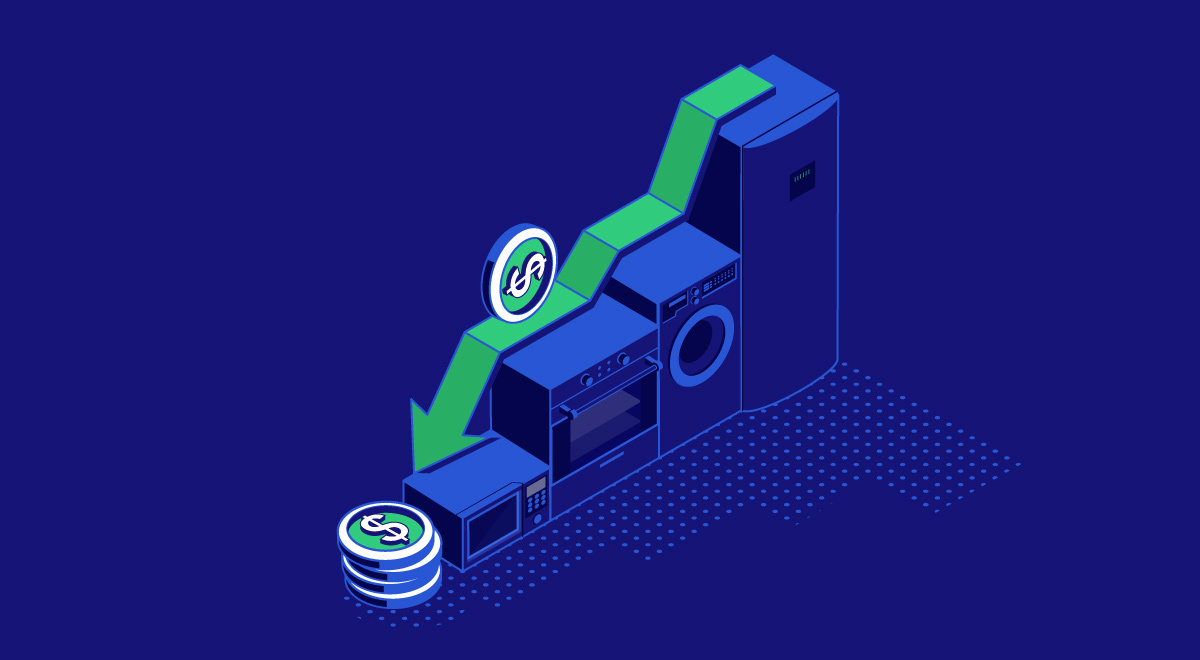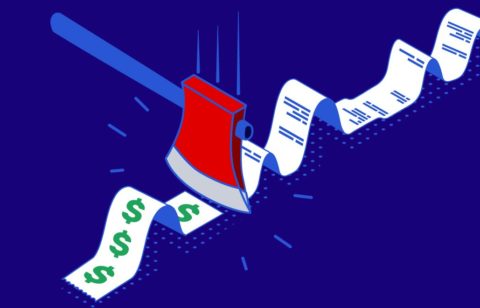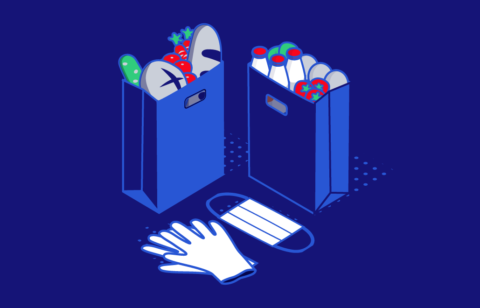With most of the country in quarantine doing their part to fight the coronavirus, life has evolved into something no one could’ve imagined a few months ago. People are working from home, kids are learning remotely, and everyone is looking for ways to stay entertained at home. America is binge-watching streaming shows and movies voraciously. People are cleaning their houses as if Queen Elizabeth were stopping by for tea. If all the homemade sourdough bread pictures are to be believed, people are cooking and baking as if channeling the ghost of Julia Child. Homes that were empty for 40+ hours a week are now filled with activity nearly 24/7. One thing is certain: people are using a lot more electricity. By now, those higher utility bills have begun rolling in after a month in quarantine, and you’re experiencing a bit of sticker shock. Now is the perfect time to learn how to lower utility bills.
1. Kill Electricity Vampires
Electricity vampires are those devices with a standby mode that suck electricity when you’re not using them. Any appliance or device that has a built-in clock, digital display, or an LED indicator light obviously uses electricity all the time. However, devices such as phone chargers, laptop chargers, hairdryers, curling irons, cable boxes, game consoles, etc. all continue to drain power even if they’re not in use. Unplug them or set them up on a power strip so you can shut them all off with the flip of a switch. Some power strips come with timers so you can set them for a specific time to turn off/on.
2. Take Advantage of Natural Light
Do you need your lights on during the day? Open your curtains or shades and let the sun light your way.
3. Use Energy-saving Modes
Most devices come with features that save energy, such as sleep modes. Dimming computer screens can save energy and battery life. Turn off features that you probably aren’t using at home, such as Bluetooth and GPS.
4. Install a Smart Thermostat
Keeping your thermostat at a constant temperature saves money, and with many programmable ones, you can lock them to prevent other family members from changing the settings. According to the Department of Energy, lowering your thermostat in winter and raising it in the summer by 1 degree for 8 hours can save 1% on your utility bill. Move it 10 degrees and save 10%! While you’re lowering temperatures, lower the temperature on your water heater for even more savings.
5. Take Shorter Showers
This may be more challenging when you know you don’t have to rush out the door to commute to work. Put a kitchen timer in there if you have family members who have a hard time keeping track of time in the shower. If you haven’t already switched to a water-saving showerhead, now’s the time to do so. They can save hot water, and they’ve improved a lot since Seinfeld’s low-flow showers.
6. Buy a Toaster Oven
They save energy because you’re heating a small space instead of an entire oven, and if you get a convection toaster oven, they’ll cook the food faster, too. Making meals in a Crockpot or Instant Pot saves energy as well.
7. Switch to Energy-efficient Light Bulbs
Switching your regular incandescent light bulbs to compact fluorescent bulbs can save you a lot of money because they use 75-80% less energy. Check out this handy guide to energy-efficient light bulbs from Consumer Reports.
8. Clean or Replace Filters
If the filters on your furnace or air conditioner are dirty, it has to work harder to do the job. Change or clean them often during their busy seasons to keep your units working efficiently. You’ll prolong their lives, too.
9. Get Outside
Staying at home doesn’t mean you have to stay inside. The more you’re outside, the less you’re using electricity inside your home. It’s good for your physical and mental health too, both of which could use a little extra help during this time.
Just because you’re now working and spending all your free time at home during the coronavirus pandemic, that doesn’t mean your utility bills should be bankrupting you. By keeping conservation in mind and following our tips on how to lower utility bills, you can lessen the impact on your utility bills and the environment.





